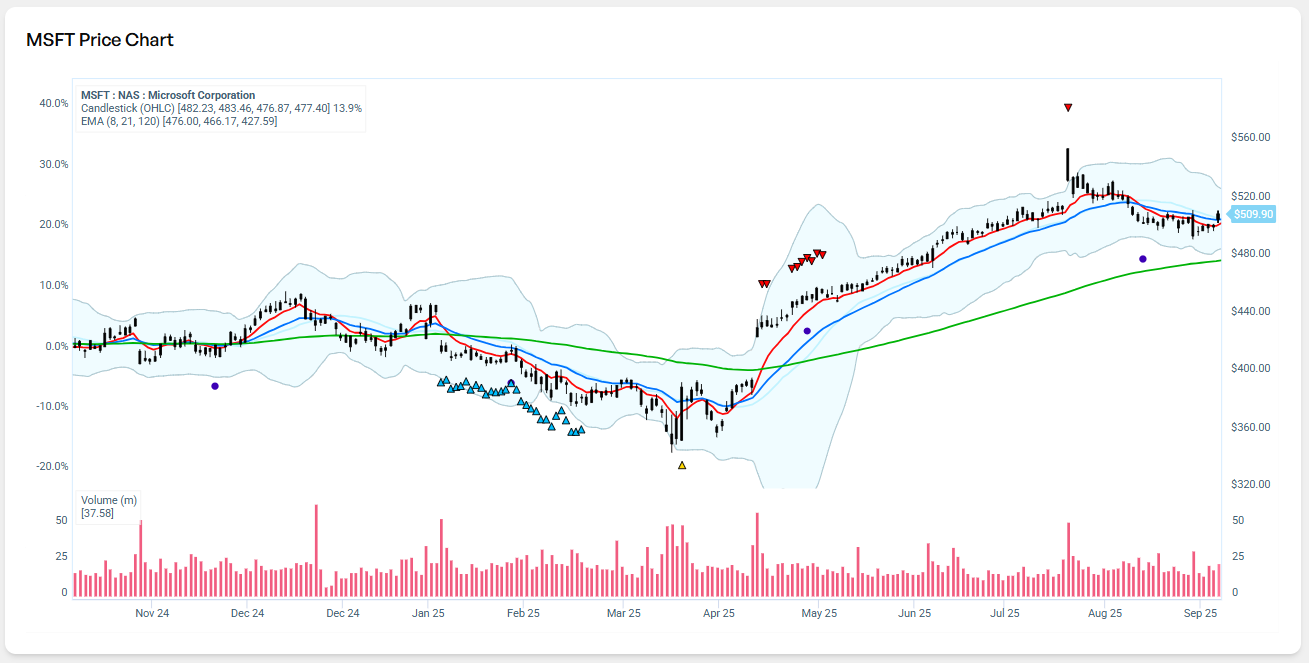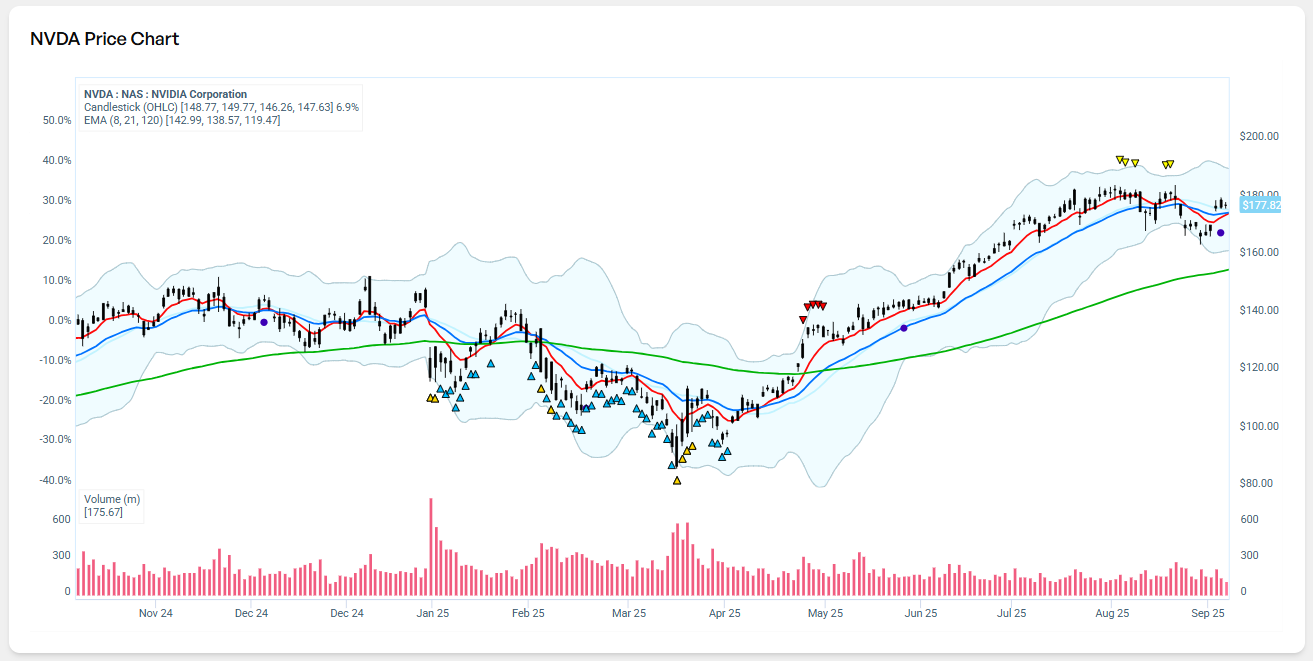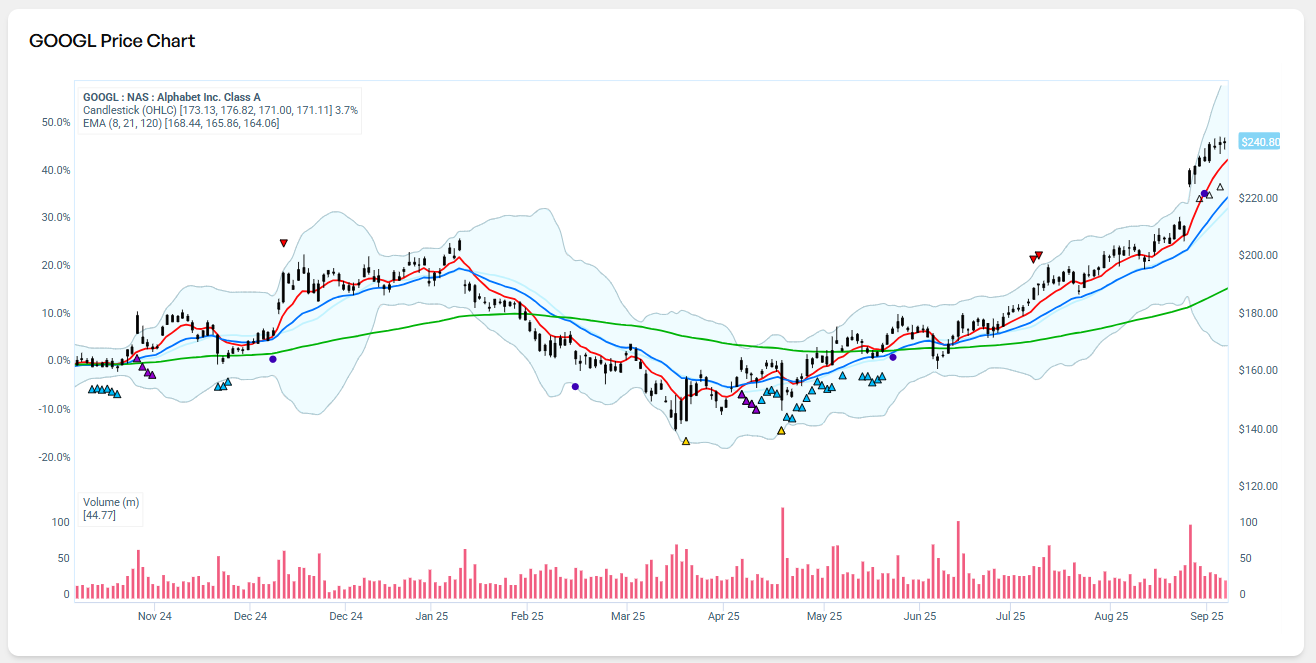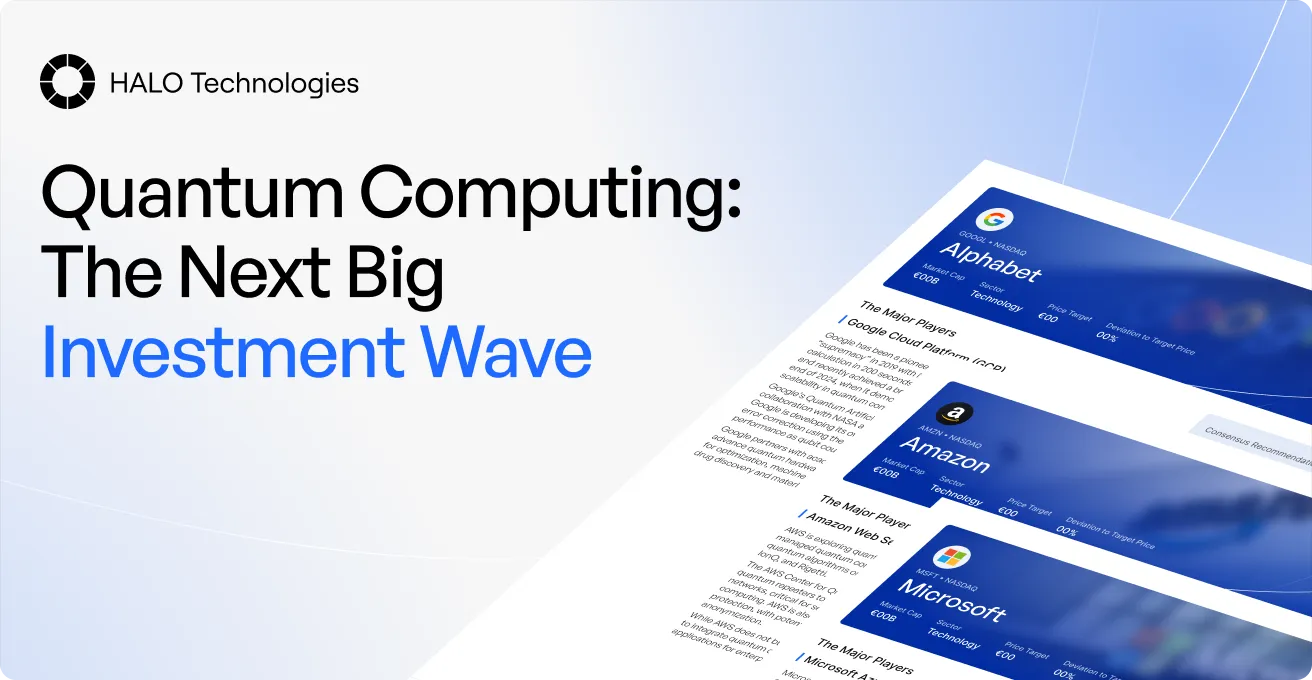Artificial Intelligence (AI) has been a hot topic for several years, and for good reason.
It has the potential to revolutionize the way we live, work, and interact with the world around us.
AI generally refers to the ability of machines to exhibit human-like intelligence using computer systems that can learn from experience, reason, discover meaning, perceive their environment, and interact ultimately solving problems without the use of hand-coded software containing detailed instructions.
AI is experiencing a massive digital transformation and is likely to be embedded in innumerable technology applications within a few years. In fact, we believe that AI will likely be one of the most disruptive forces in the future as well as one of the fastest-growing sectors within technology.
While the current global AI market is valued at over USD $136 billion, the AI industry is projected to reach USD $1.81 trillion by 2030 (1).
By 2025, as many as 97 million people will work in the AI space (2) with 87% of respondents in a recent MITSloan survey believing that AI will give them an edge over their competitors (3).
Top stocks leading the charge for Artificial Intelligence in 2023
Microsoft (MSFT)

Microsoft is one of the world's leading technology companies with products that include the Windows operating system, Office productivity applications, and Azure cloud services. The company offers licensing and support for its wide portfolio of software products. LinkedIn, its business-oriented social network, is used by millions to make connections. Outside the office, Microsoft's Xbox gaming system is second only to Sony's PlayStation. Microsoft's customers range from consumers and small businesses to the world's biggest companies and government. agencies. Microsoft is also a major player in Artificial Intelligence with its strategic investment in OpenAI (the developer of ChatGPT) in 2019, and has recently agreed to boost its stake by $10 billion.
In early February, Microsoft hosted an investor conference that laid out its strategy for AI CEO, Satya Nadella stated that AI is likely going to “reshape pretty much every software category” and mediate “all computer interaction” that is going to span every application, operating system, and browser.
Microsoft characterizes AI as a foundational technology layer, akin to the browser or search function, with the potential to drive the next wave of growth within the software space, stating that its integration into search represents “a new paradigm.” With Bing as its search engine, Microsoft is well positioned at the forefront of what it calls the “AI platform shift” and is ahead of the field in reimagining core experiences by infusing them with advanced AI technologies.
Microsoft believes that search is the largest software category in the world and that the digital ad market is valued at ~$500B globally as of 2022. The company states that its position within the broader search and digital advertising market, which it humbly characterized as a “smaller share player,” enables it to innovate at a great pace as it seeks to make Bing and Edge the “AI-powered co-pilot for the web,” creating a virtuous cycle of better engagement for consumers and higher value targeted ads for advertisers, ultimately resulting in fewer ads overall to the benefit of both parties.
In fact, Microsoft has been a pioneer in the AI space for many years. These efforts include both its AI investments directly within its own tech stack, such as Azure ML, Azure Cognitive Services, the volume of signal it captures daily and the sheer computing power of the Azure footprint. And now its partnerships with emerging companies, most visibly its investment and partnership with OpenAI, which was formalized in July 2019 and has already led to the joint innovations contained inside GitHub Copilot and Microsoft Designer, among others. These investments reflect long-term vision and the laying of foundation that will differentiate.
Microsoft within the space and fuel AI-enabled growth moving forward.
NVIDIA (NVDA)

NVIDIA Corporation designs, develops, and markets three-dimensional (3D) graphics processors and related software. NVIDIA pioneered accelerated computing to help solve the most challenging computational problems. The company's graphics processing units (GPUs) were initially used to simulate human imagination, enabling the virtual worlds of video games and films. But it can also simulate human intelligence, enabling a deeper understanding of the physical world. Its GPUs work well in applications for both autonomous vehicles and deep learning, branches of artificial intelligence. NVDIA will be one of the major “enablers” of the integration of AI into the tech ecosystem.
Recently, NVIDIA hosted its 2023 GTC keynote conference to highlight the Generative AI and Industrial Digitalization opportunities that are driving accelerating demand for Nvidia’s platforms and software solutions. The event highlighted NVIDIA’s pole position in AI/accelerated compute and as the one-stop solution provider with its portfolio of silicon, software/managed cloud services, hardware systems and full stack ecosystem for training/deploying complex models.
Moreover, the team continues to move up the software solutions stack and add value for its customers. The team is engaged with customers at every level of the value chain and provides services (e.g. platform-as-a-service, AI infrastructure-as-a-service) for customer needs across the spectrum (from specific tasks to full-blown custom AI services). For example, the team launched Nvidia AI foundation which helps customers create, train, test, deploy, and monetize their datasets.
This new technology requires intense computing power in data centres, where NVIDIA has already built up a large-and-growing business for its graphics processors and software designed for AI applications. Initially, Nvidia's business related to generative A.I. will depend almost entirely on capital expenditures by the world's largest tech giants -- Microsoft and Google, in particular. Given that both of those have rolled out aggressive plans over the past month to incorporate generative AI into services like search and office software there is a good deal of visibility going forward for NVIDIA.
Industry analysts predict that generative AI could add demand generally for some $10 billion to $15 billion worth of graphics chips, or GPUs, over the next year or two for the company. Analysts currently expect NVIDIA's annual revenue to top $46 billion in three years, which implies an annual growth rate averaging 20% - a notable pace for a chip maker at Nvidia's scale.
Alphabet

Alphabet is the holding company of Google, the firm that has the world's largest search engine (Google), the world's most used smartphone operating system (Android), and a multitude of other internet-based services, including the world's largest video-sharing site (YouTube). Alphabet's other holdings include Chrome, Gmail, Google Drive, Google Maps, Google Photos, Google Play, Search; and the Other Bets include emerging businesses at various stages of development, ranging from those in the research and development phase to those that are in the beginning stages of commercialization.
Like Microsoft, Alphabet has been involved in AI research for some time
DeepMind, an AI research lab owned by Alphabet, has been working on developing advanced AI systems that can be used to solve complex problems in fields such as healthcare and climate change. One of their recent breakthroughs was the development of a protein-folding AI system that can accurately predict the 3D structure of proteins.
Google has been investing heavily in AI research and development. Some of their latest AI initiatives include developing AI-powered healthcare solutions and creating AI tools that can help improve the accuracy and efficiency of natural language processing. Waymo, Alphabet's autonomous vehicle division, has been using AI to develop self-driving cars that can navigate complex road environments safely and efficiently. They have been testing their autonomous vehicles on public roads in select cities across the US.
Google Brain: Google Brain is an AI research team at Google that is working on developing advanced machine learning algorithms that can be used for a variety of applications, including image recognition, language translation, and speech synthesis.
Now with generative AI coming to the fore, Alphabet recently announced that it was launching the public version of “Bard”, Google's much-hyped answer to Microsoft Corporation’s Bing integrated AI collaboration with OpenAI. Bard will be integrated with Google's search function and be able to draw on real-time data.
Bard is an experimental Google chatbot that is powered by the LaMDA large language model. It’s a generative AI that accepts prompts and performs text-based tasks like providing answers and summaries and creating various forms of content. Bard also assists in exploring topics by summarizing information found on the internet and providing links for exploring websites with more information.
The HALO Research team identified the incredible potential of Artificial Intelligence as an investment opportunity back in April 2018 when they launched the AI thematic share portfolio. The portfolio contains ten hand selected companies which are best to capitalise on the rapid growth of the AI industry.
To learn more about the AI thematic share portfolio and the 10 stocks within the portfolio, click on the link below and simply provide your email address and a few details to get access to HALO Global.
https://www.halo-technologies.com/artificial-intelligence-vue





